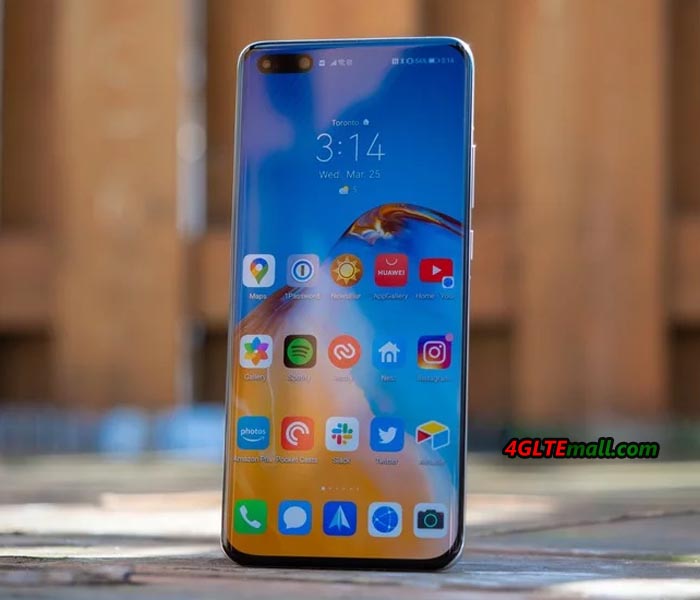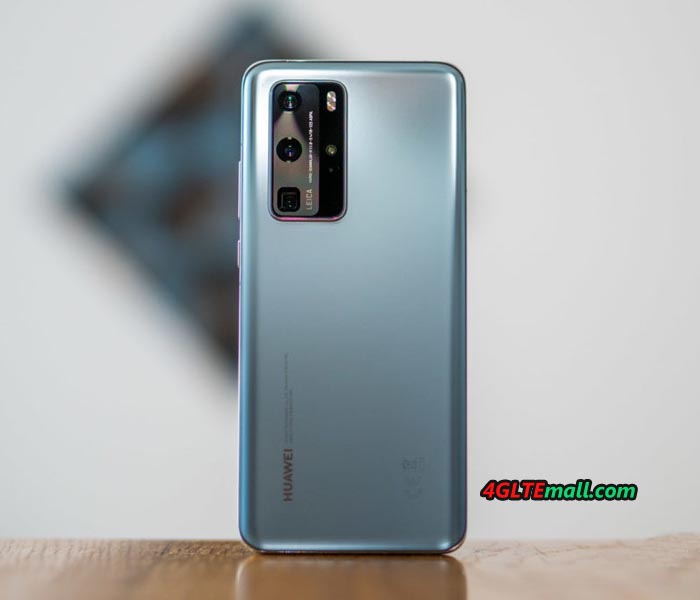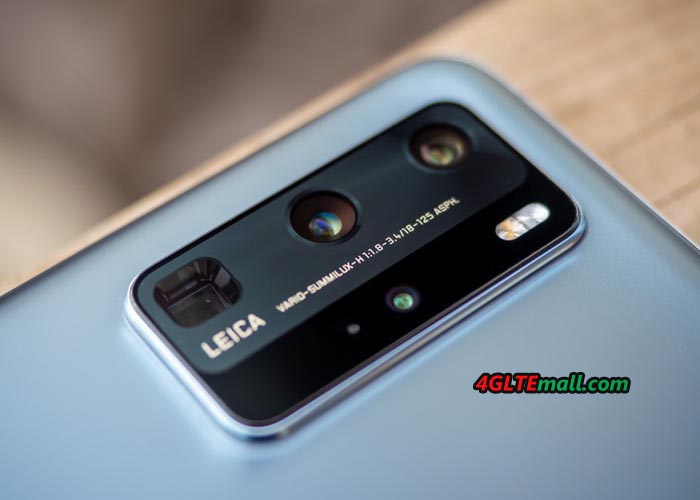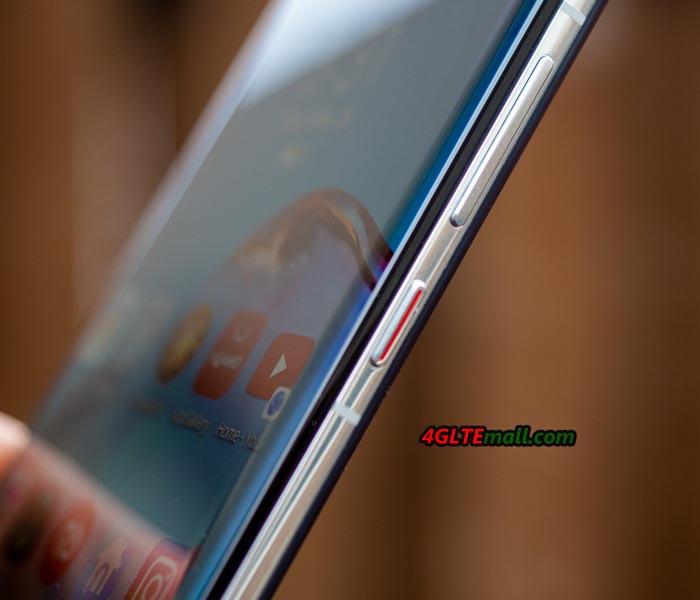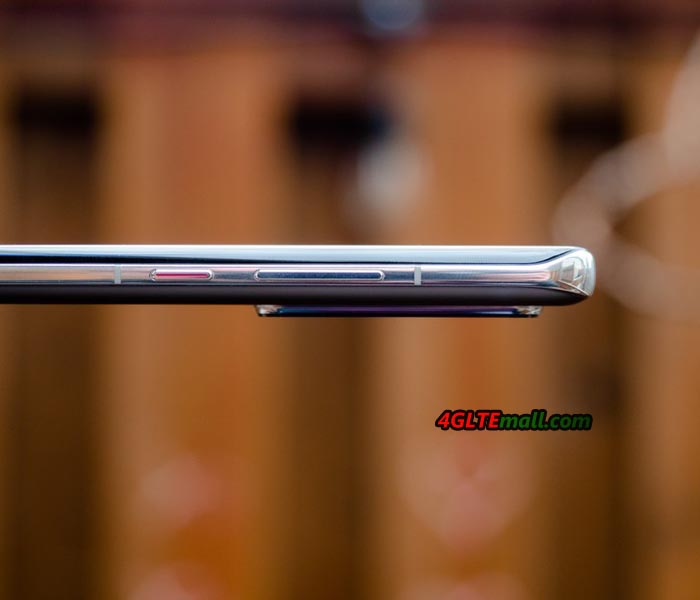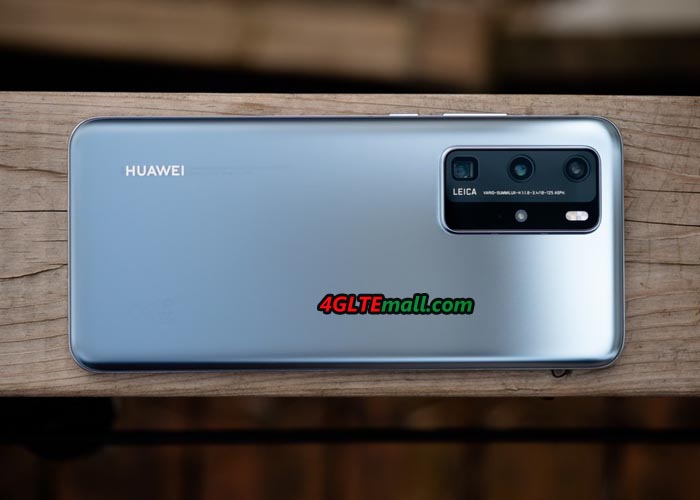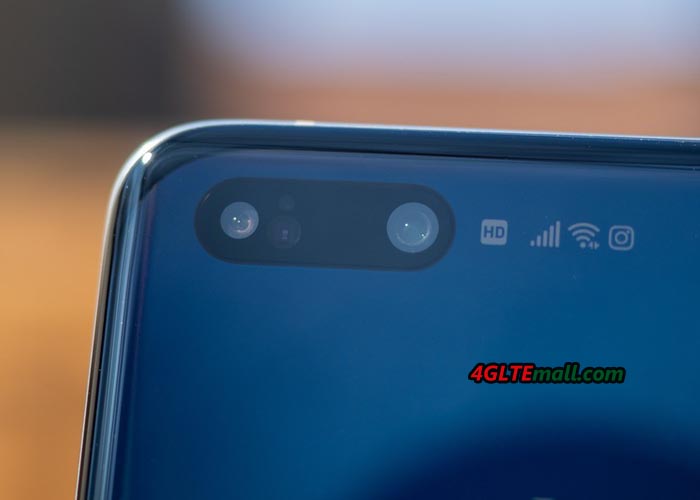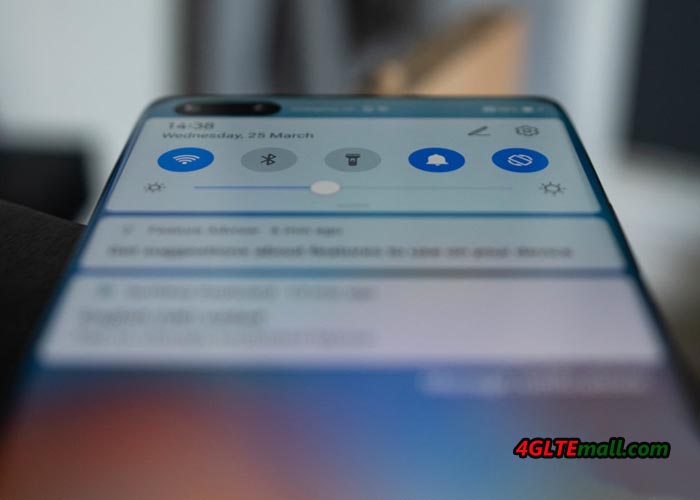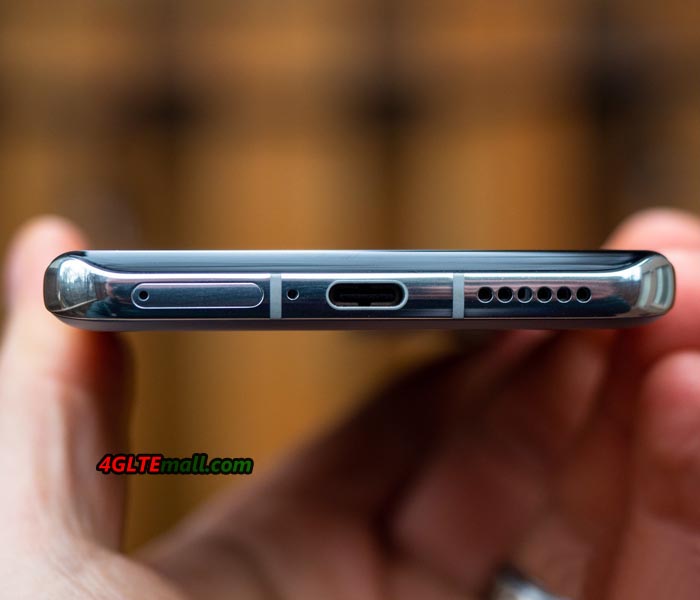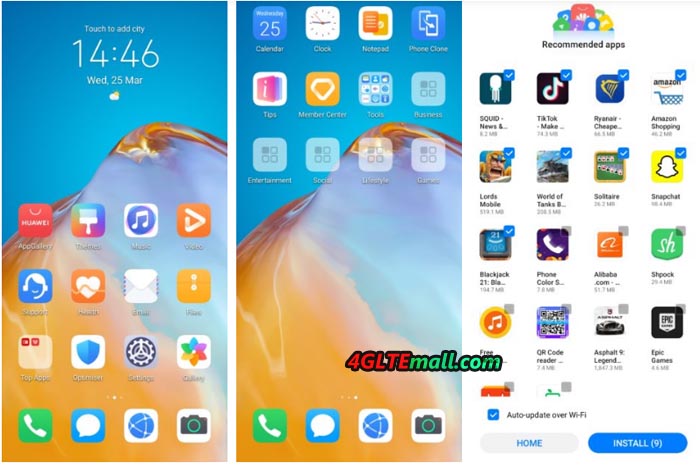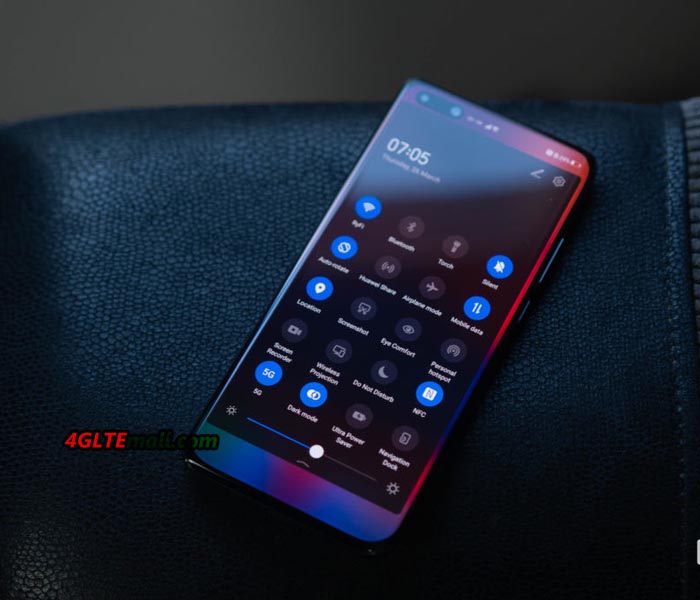Huawei P40 Pro 5G SmartPhone Test
Before we get started, we should tell you can still install Google apps on the device, but that's not really safe. But Huawei will have to go without Google in the long run anyway. Today we will have a test of this new Huawei 5G smartphone: Huawei P40 Pro.
Huawei P40 Pro Specifications:
- Manufacturer:Huawei
- Model name:P40 Pro
- Price: 1199USD
- Available:from April 8, 2020
- Size:2 x 72.6 x 8.95 mm
- Weight including battery:209 g
- Operating system:Android 10
- Battery:4200 mAh
- Display:58 ″ OLED display (FHD +, 90 Hz)
- Camera:Quad camera (50 + 40 + 12 MP + ToF)
- Storage:256 GB
- CPU:Kirin 990 with 5G
- RAM:8 GB
These are not all specifications of the Huawei P40 Pro. On the Huawei official website, you can get more information about the Android smartphone.
Huawei P40 Pro design and feel
At the beginning of 2020, we was afraid that all flagship phones would get bigger, but Huawei hardly changed anything with the P40 Pro. It feels similar to the Huawei P30 Pro. That doesn't mean it's a particularly light and compact smartphone, but we find it a lot more comfortable than the latest new Samsung Galaxy S20 Ultra.
The processing is of course clear again and the design is now a bit "rounder" because the glass on the back and front has also been bent at the top and bottom. Incidentally, the display was not bent there. But we have to say that the difference compared to the P30 Pro is not big and it feels very similar. We tested the P40 Pro in silver color, which is one of the most beautiful colors on the market. The camera hump is now a bit bigger, which unfortunately has a small disadvantage. The camera hump is not quite as wide, but just as high, thick and sharp-edged as the Samsung Galaxy S20 Ultra. That could have been solved a little more comfortably for my taste.
Huawei P40 Pro Display
The display of Huawei P40 Pro made a very good impression in the first impression and we were also completely satisfied in the test. It doesn't quite come close to the current Samsung panel with 120 Hz, but it's not that far away either. FHD+ doesn't bother too much, by the way, it is criticized in this price range.
The front camera is very good, but the hole is too wide. There is a front camera and an infrared sensor designed to optimize unlocking in poor light. Face unlock works great too, but it's still a 2D scanner and not a 3D scanner. If you are already installing such a wide hole, then please use a camera that enables a 3D scan of the face.
But apart from that, we was very satisfied with the display, it delivers good colors and viewing angles, is pleasantly fast at 90 Hz and there is a thin bezel. It's not the best OLED display on the market, but it's good enough for a flagship in this price range, and luckily not bent as much as the Mate 30 Pro.
Huawei P40 Pro Camera
The highlight of the P series is the camera and that will also be the case in 2020. Huawei has improved the video quality and it still does not come close to Apple and Samsung, but it is no longer a weakness (like last year). In addition, there is finally 4K with 60 fps. The quality should be enough for most.
However, Huawei has put the focus back on the photos and there is now a new sensor with 50 megapixels. This sensor is damn good and takes extremely sharp pictures, even in poor lighting conditions without night mode.
The difference to the P30 Pro is not serious (which speaks for the P30 pro), but the P40 Pro has made another leap. The pictures with 5x zoom are also very passable.
Too bad that the 10x optical zoom is only available in the Huawei P40 Pro Plus, that would have been a unique selling point. The 10x hybrid zoom is also good. The 5x zoom of the Huawei P40 Pro is frankly a bit too much.
The front camera takes very good pictures, as we have already mentioned and the ultra-wide shots can also convince. With portrait photos, the Huawei P40 Pro recognizes the outlines very well thanks to the ToF sensor, but we also found in the test that the object in focus often looked a little blurred. Huawei would have to add a software update.
Huawei has installed one of the best cameras on the market and shows that Samsung cannot deliver better pictures with twice as many megapixels. We think the sensor from Huawei is clearly better.
Huawei P40 Pro Battery
The Huawei P40 Pro offers excellent battery life. The competition has now built bigger batteries in their flagships, but Huawei gets more out of the 4200 mAh than Samsung out of 5000 mAh. The P40 Pro is again a long-distance runner, despite the 90 Hz, which drain the battery a little faster.
Nothing has changed with fast charging, as in 2019 there is the option for up to 40 watts, which is easily enough. It charges wirelessly with up to 27 watts, which is also enough. The Plus model, which comes in June, offers Qi with up to 40 watts and is the current leader on the market.
Huawei has of course given the P40 Pro reverse charging again, so you can also charge other Qi models wirelessly on the back of the P40 Pro.
Huawei P40 Pro Software
Over the past few years, we have gradually become warm with EMUI and EMUI 10.1 is also a step forward.. In addition, the performance is right, because the Huawei P40 Pro is very fast, there is nothing to complain about.
But you know what is coming: The Google services are missing. No Google Play Store, no YouTube app, no Google Pay, no banking app in the AppGallery, no Android Auto, everything is missing. Some apps can be found through other stores or downloaded APK files, but to be honest it is tedious. Those who rely on Google and Co. will not be happy with the P40 Pro.
We tried to get the best out of it, but that's not enough. You don't just have to look for some apps somewhere on the web, you also have to check for updates and install them manually. And if there is a deal like Monument Valley 2, then you are unlucky with the Huawei P40 Pro.
This didn't bother me so much with the Huawei Mate 30 Pro, and the Huawei Mate Xs which is a smartphone for a very small target group. With Google apps, that would have been an excellent flagship.
Huawei P40 Pro Conclusion
In summary, the Huawei P40 Pro has the best hardware on the market. It hasn't gotten bigger, it has a great display, it has an excellent camera, and it still has a good battery life and almost everything else you would expect in an Android flagship.
However, for many users, you couldn't use it in everyday life without Google apps. Only those who can completely do without Google apps and the selection of the Play Store can access here without hesitation.
If it weren't for the problems with the US government, the Huawei P40 Pro would again be one of the best Android smartphones on the market. But the software is decisive in the end and if you don't want to collect APKs and do without things like mobile payments via Google Pay, this is unfortunately wrong.
The Huawei P40 Pro with Google services would be a very clear purchase recommendation, but without it things look a bit different. Other 5G smartphones are not much worse (or sometimes better). The P40 Pro is going to have a hard time of it in 2020.

